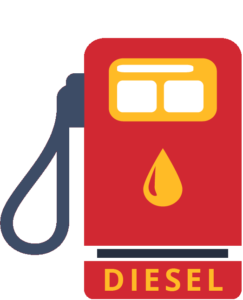Daimler Truck hosted its first Capital Markets Day as a standalone entity this week in Boston, Mass., where it projected strong global revenue growth of 40-60% from 2025 to 2030.
It says its 2030 financial strategy is driven by technology plans, an increase in service revenue, and the market launch of autonomous trucks. The company told investors its technology strategy is built on four global platforms: battery; hydrogen; diesel; and software.

“Daimler Truck is doing very well. We are increasing our guidance for 2023. We are firmly on track to deliver on our 2025 ambitions,” said Martin Daum, chairman of the board of management of Daimler Truck.
“And we are ready to take Daimler Truck to the next level by 2030…Our flexible technology strategy enables us not only to navigate the historic transformation of our industry, but to capture all opportunities associated with it. In short: Daimler Truck is transforming for sustainable growth – to the benefit of our employees, our customers, and our shareholders.”
Daum said Daimler enjoyed a strong Q1 and an increase in unit sales in Q2, prompting it to increase its guidance for this year. Worldwide unit sales grew 9% year over year in the second quarter. North America saw a 14.7% increase.
“Looking beyond 2025, we see multiple growth opportunities in our industry and we are fully equipped to exploit these opportunities,” said Jochen Goetz, member of the board of management and CFO of Daimler Truck.
As the trucking industry decarbonizes, Daimler said it will achieve sustainable transportation through two technology fields: power to drive, comprising the propulsion system; and intelligence to drive, focused on electronics and software.
Power to drive involves delivering the best total cost of ownership for customers regardless of energy source being used for propulsion, be it diesel, battery or hydrogen. Intelligence to drive features software with high quality and customization.
On the medium-duty side, Daimler is focused on a “non-captive procurement” approach while it will build its own heavy-duty engines. The truck maker says it’s convinced that only a combination of battery-electric and hydrogen-powered propulsion will allow it to achieve a zero-emissions future. It will produce its first fuel cell-powered vehicles in the second half of this decade, the company said, as part of its cellcentric joint venture with Volvo Group.
It is also considering hydrogen combustion engines for certain applications, such as those requiring high power, if regulations allow for the low-carbon alternative.
Beginning next year, Daimler Truck says it will begin rolling out new software features to enhance connectivity and fleet owner data access, predictive maintenance and advanced over-the-air updates. All will be supported by a more powerful computer architecture.



